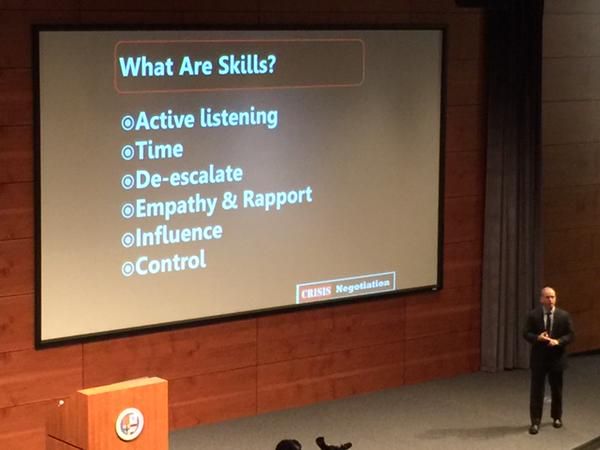The goal in law enforcement crisis situations where crisis and hostage negotiators are being utilized entails influencing a behavioral change in someone in order to gain voluntary compliance. Although initially this statement might sound jargon-filled, it simply means using a set of skills to get a person to stop acting the way he or she currently is and getting that person then to act the way you want them to.
The following are the core skills taught in initial law enforcement crisis and hostage negotiation courses across the world. Although you as the reader most likely will never be negotiating with someone threatening suicide on the ledge of a bridge or claiming if their demands are not met they will take someone’s life, you deal with your own crisis situations daily. This ranges from decision-making strategies at work, giving directives to employees, making a sales pitch, negotiating terms of a contract (a house for example), and determining financial and budget plans.
The unifying factor is in crisis situations a person’s actions are being dictated by their emotions at the detriment of rational thinking. Therefore, an effective crisis negotiator seeks to reduce the negative emotions that are dictating the person’s actions and bring back a more rational thinking process by employing the skills below.
The skills are active listening, using time, demonstrating empathy and building rapport, influencing the other person, and the concept of control. Each skill is further discussed [HERE].


